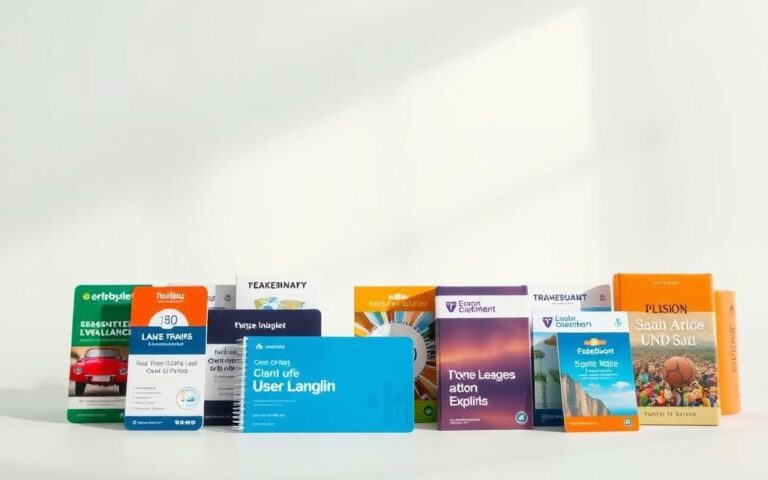Advertisement
About 400 million people live outside their home countries. This shows how important it is for expats to manage their money well abroad. One key step is learning how to open a bank account in a new country.
Having a local bank account makes daily life easier. It lets you access your money quickly and saves you money on currency changes. Today, many choose international bank accounts for easy money management anywhere.
In this article, we explore important steps and things to think about when opening a bank account abroad.
Understanding the Importance of an Expat Bank Account
For expats, opening a local bank account is crucial. It helps them manage their money effectively while living abroad. Access to local banking makes daily transactions easier and offers financial peace of mind.
Benefits of Having a Local Bank Account
Having a local bank account brings many advantages to expatriates. Here are the key benefits:
- Access to Local Currencies: Manage expenses easily without constant currency exchanges.
- Reduced Fees: Save on international transaction fees that pile up with foreign accounts.
- Convenience in Transactions: Pay bills and transfer money smoothly within the host country.
- Financial Stability: A local account provides security, making saving and budgeting easier in a new currency.
Managing Currency Exchange and Fees
It’s important for expats to understand currency exchange and its fees. High rates and fees can deeply affect your finances. Here are ways to cut down expenses:
- Use Local Banks: They often have better rates than international banks.
- Monitor Exchange Rates: Keeping an eye on rates helps decide the best time to exchange money.
- Consider Multi-Currency Accounts: Some banks offer accounts in various currencies, adding flexibility.

Researching Banking Options in Your Destination Country
Expats must look into different banking choices in their new country to handle money well. Deciding among local, international, online, and traditional banks affects your banking journey. Knowing these differences helps open a bank account abroad and matches financial requirements.
Types of Banks: Local vs. International
Local banks focus on the financial likes and cultural details of the people living there. They offer personalized services and knowledge about local investments. On the other hand, international banks provide more financial products, good for expats needing worldwide services like multi-currency accounts and moving money across countries. Each choice has its perks. Local banks might charge less, but international banks could give better security for expats’ offshore banking.
Online Banks vs. Traditional Banks
Technology has increased online banking, offering ease and flexibility. Online banks often have lower fees due to less operational costs, appealing to expats. Traditional banks, however, offer face-to-face customer help and branches to visit, possibly with higher charges but more services like ATM networks. The choice is based on what’s important to you in terms of getting to your money, help, and banking needs.

Requirements for Opening a Bank Account as an Expat
Opening a bank account as an expat involves several important steps. You’ll need different papers to prove who you are and where you live. Each bank has its own rules. This could make managing your money more complex.
Essential Documents Needed
- Identification Documents: You usually need a valid passport or national ID card.
- Proof of Residency: A lease, utility bill, or any document with your address can work.
- Tax Identification Number: Banks might ask for this for tax reasons.
- Employment or Student Verification: Proof of work or school may be required, depending on your situation.
Additional Verification Processes
Some banks might ask you to go through more steps, like background checks or interviews. This is to follow the law and ensure security. Getting ready for these early can make opening your account easier. It’s smart to ask banks what they need from expats for money management ahead of time.
The Application Process for Expats
Starting a bank account abroad might seem hard. But with the right prep, expats can make it easier. It’s important to know how to handle your expat bank account for money success overseas.
Step-by-Step Guide to Applying
- Collect necessary papers like your passport, place of living proof, and tax ID.
- Look into banks to find the best account choices for expats.
- Go to the bank you pick or use their site to get the form.
- Fill the form carefully. Make sure every detail is correct and clear.
- Turn in your form and needed papers, then wait for a yes or no.
- After getting a yes, set up internet banking to handle your money easily.
Tips for a Smooth Application Experience
Here are some ideas to help make getting a bank account stress-free:
- Make sure all documents match the bank’s needs.
- Prepare for any language problems and get help if you need it.
- Pick the right kind of account for your money needs.
- Keep talking to the bank to solve any issues.
- Remember to keep track of key dates for your account.
Managing Your Expat Bank Account After Opening
After opening your expat bank account, managing it well is key to keeping your finances sorted while you’re overseas. With online banking and mobile apps, it’s easier than ever. You can use these tools for daily tasks, watching your account, and sticking to your budget. Banks like HSBC and Citibank let you send money globally, check your past transactions, and pay bills locally right from your phone or laptop.
But remember, while you enjoy these modern banking perks, you must follow U.S. tax rules. If you have an account overseas, you need to know about the IRS’s rules, like the FBAR and FATCA. Not following these rules can lead to big fines. So, when you open your global bank account, be sure you know your tax duties and talk to tax experts who know about expat life.
To sum it up, smart expat bank account management means using the newest banking technology and keeping up with tax rules. By doing these things, you can handle your money better abroad and steer clear of legal troubles. This lets you enjoy living abroad without financial worries.



